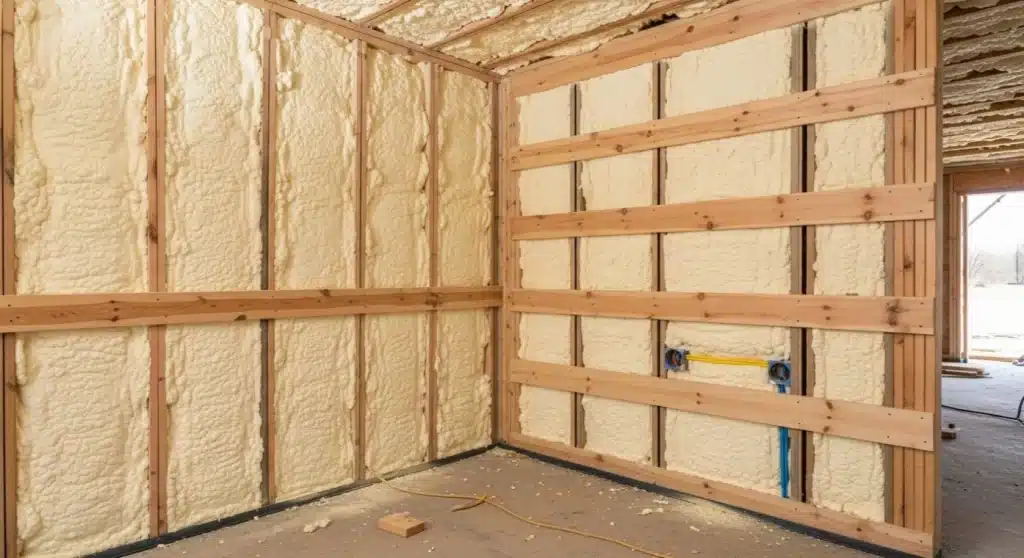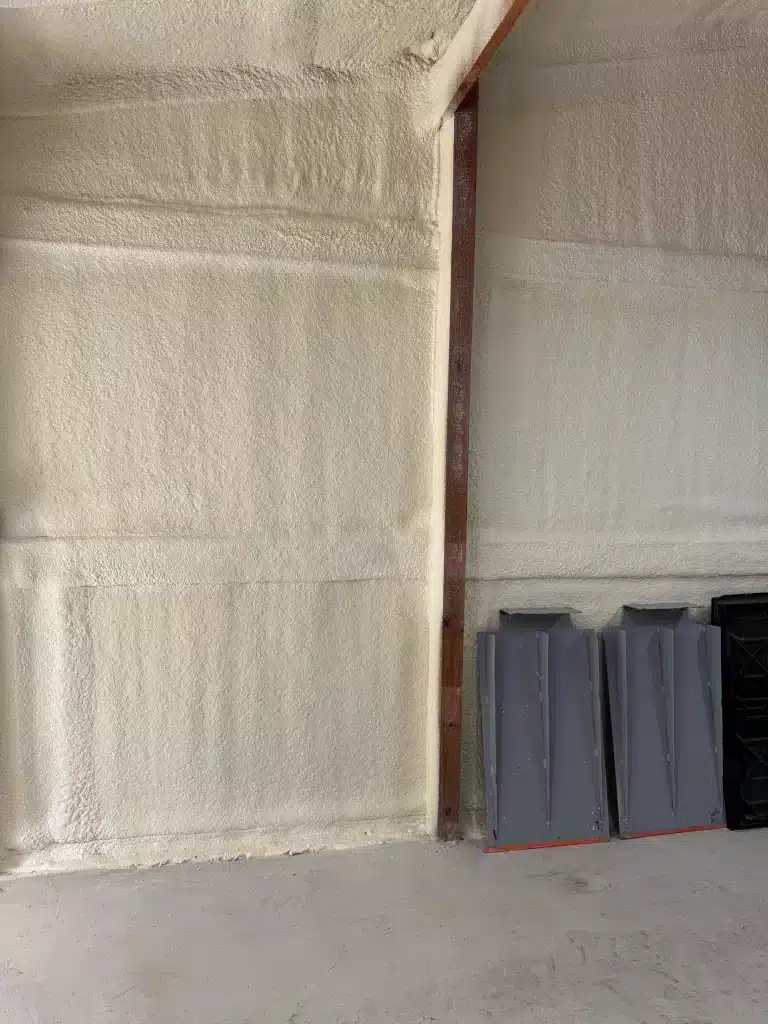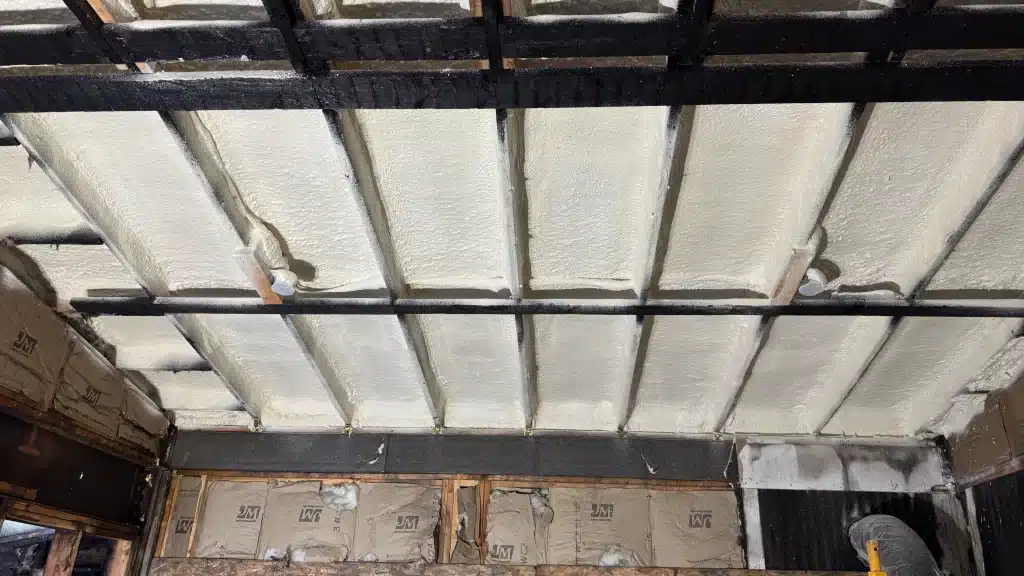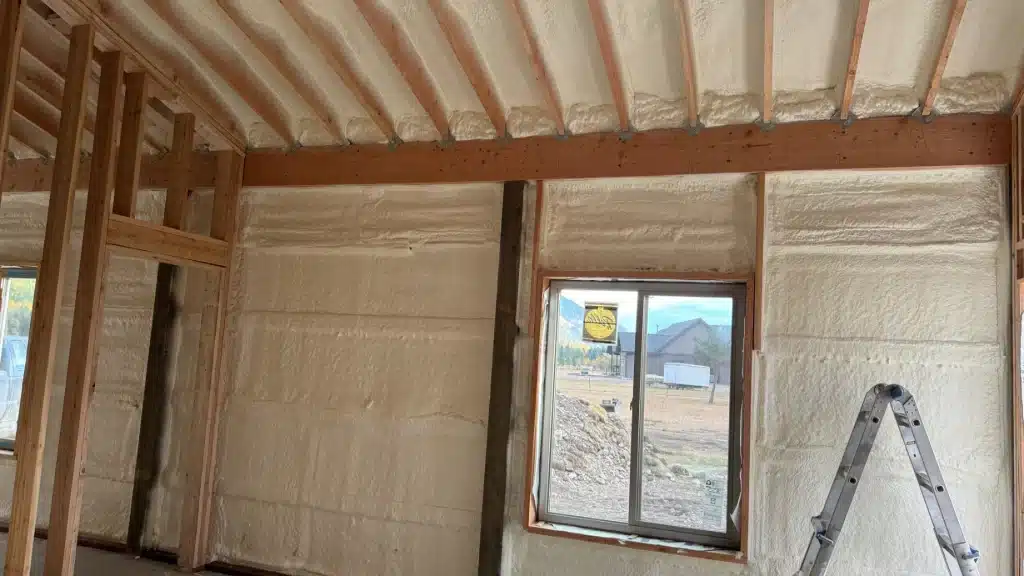Spray foam insulation in homes lasts between 20 to 30 years, with many installations performing well beyond that when applied correctly. The exact lifespan depends on the type of foam used, the quality of installation, and environmental conditions. Unlike fiberglass or cellulose, spray foam maintains its shape, resists sagging, and does not settle over time, making it a long-term solution for thermal performance.
Professional installation plays a major role in durability. Poor application, exposure to excess moisture, or structural damage can reduce longevity. With proper care, homeowners rarely need to replace spray foam once installed, which makes it a dependable choice for long-term insulation.
Factors Affecting Lifespan
Material Type
- Open cell spray foam is softer and more flexible but slightly less durable.
- Closed cell spray foam is denser, more rigid, and resistant to moisture, making it last longer in demanding conditions.
Climate Conditions
In hot, dry regions like Fresno, closed cell foam typically performs longer since it resists both heat and potential moisture intrusion better than open cell.
Application Quality
Correct thickness, even coverage, and curing time influence lifespan. Experienced crews using proper equipment prevent future performance issues.
Maintenance and Repairs
Spray foam requires minimal upkeep. Spot repairs after water leaks or roof damage extend its useful life.
Comparison of Insulation Options
| Insulation Type | Average Lifespan | Moisture Resistance | Air Sealing Effectiveness | Maintenance Needs |
|---|---|---|---|---|
| Open Cell Spray Foam | 20–25 years | Moderate | High | Low |
| Closed Cell Spray Foam | 25–30+ years | High | Very High | Very Low |
| Fiberglass Batts | 10–15 years | Low | Low | Medium |
| Cellulose | 8–15 years | Low | Moderate | Medium to High |
Technical Data for Spray Foam
| Specification | Open Cell Spray Foam | Closed Cell Spray Foam |
|---|---|---|
| R-Value per inch | ~3.5 | ~6.5 |
| Density | 0.5 lb/ft³ | 2 lb/ft³ |
| Water Resistance | Low | High |
| Structural Support | Minimal | Strong |
| Permeability | High | Low |
Things to Consider Before Choosing Spray Foam
- Moisture Exposure: In crawl spaces or areas prone to leaks, closed cell foam provides better protection.
- Energy Efficiency Goals: Higher R-values per inch mean closed cell insulation delivers greater performance where space is limited.
- Structural Strength: Closed cell foam adds rigidity to walls and roofs, useful in seismic regions like California.
- Long-Term Value: While all spray foams offer long life, choosing the right type for the setting maximizes results.
Bonus Tip: Always inspect roofing and plumbing before installation to avoid trapping hidden moisture beneath the foam.
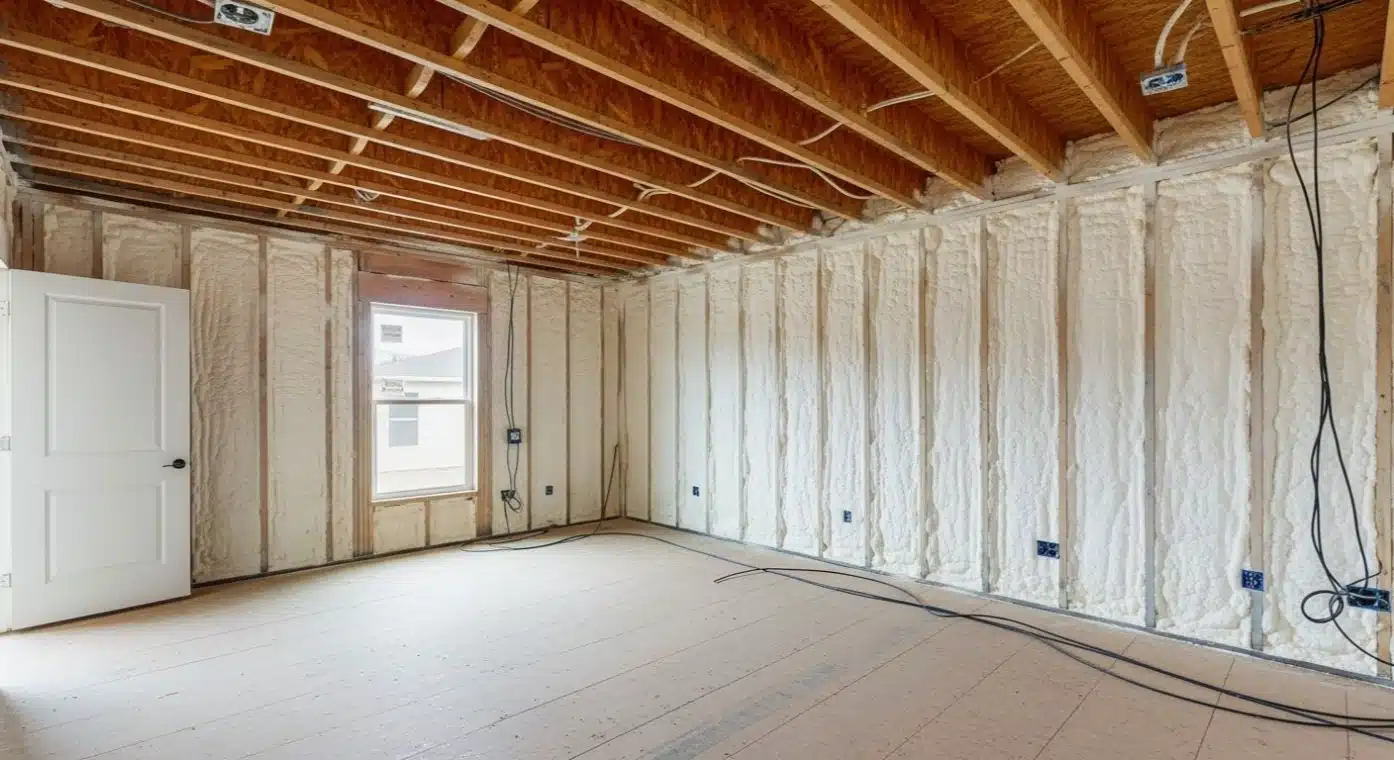
Services Offered by Supreme Spray Foam Fresno
- Residential Spray Foam Insulation: Long-lasting thermal barrier for homes.
- Commercial Spray Foam Insulation: Durable insulation for large-scale buildings.
- Attic Insulation: Prevents heat loss through the roof with consistent coverage.
- Spray Foam Repairs: Targeted fixes to extend existing insulation lifespan.
Common Questions Before Installation
Can spray foam be installed over old insulation?
Yes, but removing damaged or wet insulation first is recommended to avoid trapped moisture.
Is spray foam safe inside homes?
Once cured, spray foam is inert and safe for indoor use.
Does spray foam reduce energy bills?
Yes, by minimizing air leaks and providing higher R-values compared to other materials.
Bonus Tip: Proper ventilation during curing ensures a safer and cleaner installation process.
Key Takeaways
Spray foam insulation lasts 20–30 years in homes, with closed cell foam offering superior durability and moisture resistance. Installation quality, climate, and ongoing care determine overall longevity. When chosen correctly, spray foam insulation provides lasting comfort and energy efficiency for decades.
Contact Supreme Spray Foam Fresno
For expert installation and repair services, contact Supreme Spray Foam Fresno at [email protected] or call (559) 545-0800 for more information about insulation solutions for homes and businesses in Fresno.
FAQS
Does spray foam break down over time?
Spray foam maintains performance for decades. Minor shrinkage may occur if exposed to extreme conditions, but proper application prevents this.
How does spray foam react to pests?
Rodents or insects generally do not eat spray foam, though they can burrow if entry points exist.
Can spray foam insulation be removed?
Yes, but removal is labor-intensive. Mechanical scraping or professional services are often required.
Does spray foam lose R-value with age?
It retains most of its insulating value over time, unlike some materials that degrade quickly.
Can spray foam be applied in all seasons?
Yes, but extremely cold or wet conditions may require adjustments in equipment or materials.


